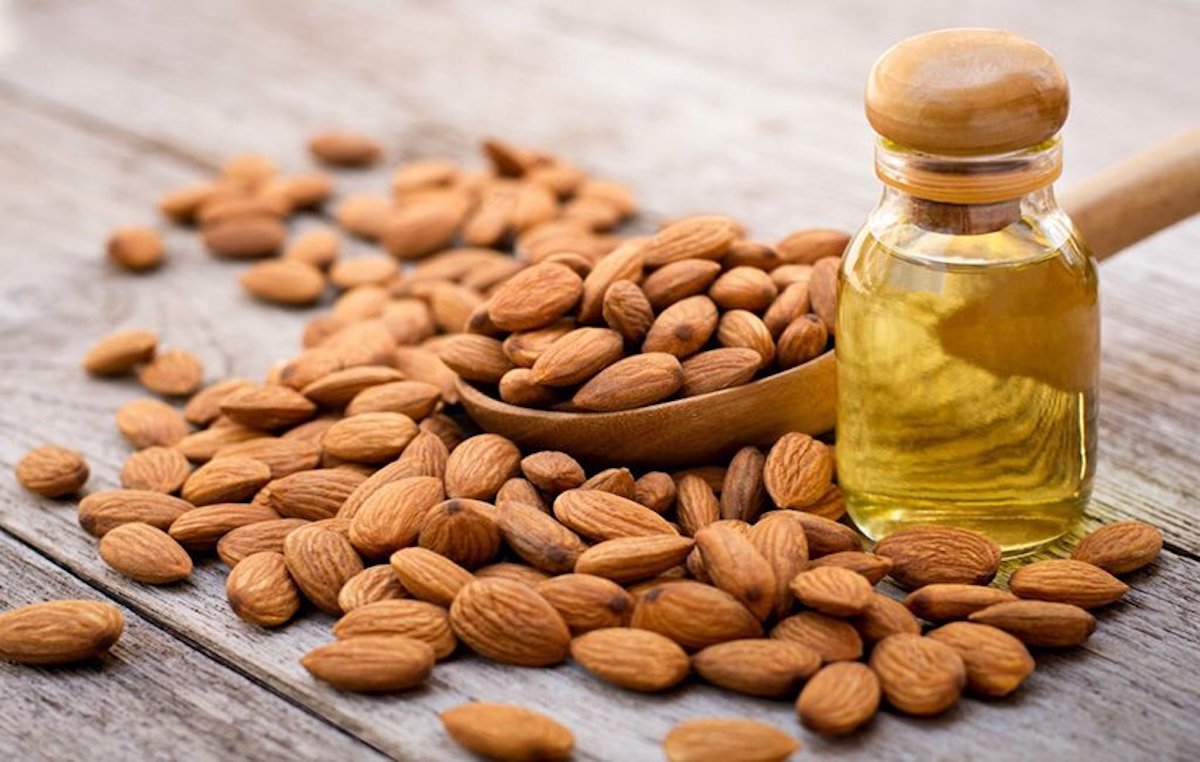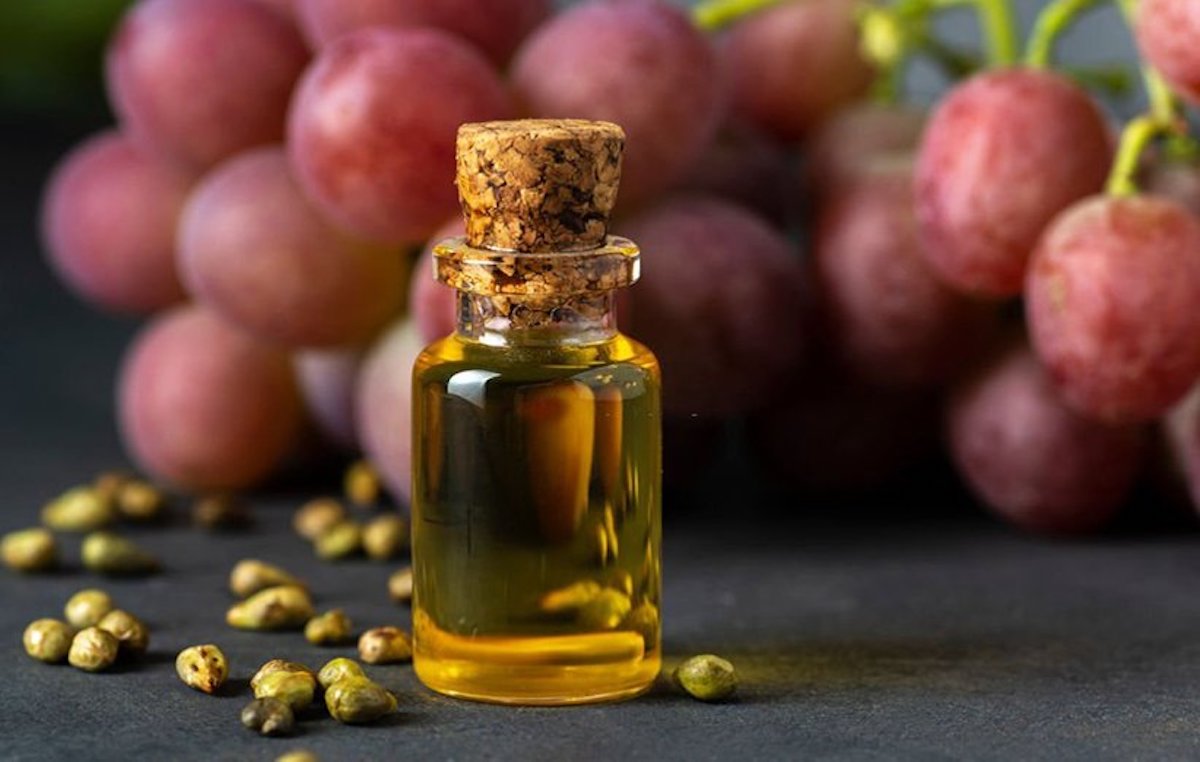6 Best Natural Oils for Dry Skin and How to Use Them

Best Natural Oils for Dry Skin: Both the skin on the face and body need moisture to stay healthy. When the skin lacks sufficient hydration, it becomes dehydrated, leading to issues such as itchiness, flakiness, dullness, and even fine lines. Natural oils are a great choice for retaining moisture, especially during the colder and drier seasons. In this article, we’ll introduce six of the best oils for dry skin and how to use them effectively.
1. Coconut Oil
Coconut oil is ideal for both skin and hair, particularly in tropical regions where coconuts are abundant.
Benefits
Coconut oil is rich in lauric acid, known for its antibacterial, anti-inflammatory, and antioxidant properties. It protects the skin from sun damage and acts as an excellent emollient for irritated skin. It can also help treat minor cuts and burns and soothe skin conditions such as eczema (under medical supervision).
How to Use
Use virgin, organic coconut oil to avoid contaminants that could harm your skin. Apply a small amount to clean, dry skin. It can serve as both a moisturizer and a makeup remover. If you’re using it for the first time, do a patch test on your arm. Avoid use if any irritation occurs after 24 hours.
Who Should Avoid It
Best Natural Oils for Dry Skin, People with sensitive or acne-prone skin should avoid coconut oil, as it may clog pores and worsen breakouts.

2. Olive Oil
Olive oil is another popular choice for dry skin. It is extracted from the fruit of the olive tree. For skincare, extra virgin olive oil is recommended.
Benefits
Olive oil has anti-inflammatory and antioxidant properties. It relieves itching and excessive dryness and can help reduce fine lines and wrinkles. It’s even safe for use around the eyes and is commonly used for baby massage.
How to Use
Apply olive oil immediately after a shower to lock in moisture. Depending on your skin type and climate, daily use may be beneficial. However, overuse can clog pores.
Who Should Avoid It
Avoid daily use, especially if you suffer from atopic dermatitis (eczema), as it may aggravate the condition.
3. Almond Oil
Best Natural Oils for Dry Skin, Sweet almond oil works wonders on dry, damaged skin, promoting repair and rejuvenation. It’s been used in traditional medicine for centuries.
Benefits
Almond oil is rich in fatty acids, vitamins E and A, and zinc. It hydrates the skin, supports wound healing, and strengthens the skin’s barrier. It reduces inflammation, oxidative stress, and sun damage, and can lighten scars and reduce wrinkles. Under medical guidance, it may relieve itchiness caused by eczema or psoriasis.
How to Use
Gently massage a small amount of almond oil in circular motions onto your face. It can also be used around the eyes and on chapped lips. For sun-tanned skin, mix it with lemon juice and honey. For exfoliation, combine it with sugar to create a scrub.
Who Should Avoid It
Best Natural Oils for Dry Skin, Although almond oil is lightweight and non-comedogenic, people with nut allergies should avoid using it topically.

4. Argan Oil
Extracted from the argan tree native to Morocco, argan oil benefits both skin and hair and is commonly used in cosmetic products.
Benefits
Its lipids create a protective barrier that prevents moisture loss and strengthens the skin’s natural barrier. Argan oil also regulates sebum production, making it suitable for oily skin. It has anti-acne and anti-aging effects and promotes wound healing. Pregnant women can use it to prevent stretch marks.
How to Use
Argan oil can be used as a day or night cream and even under makeup. After cleansing your face, apply a few drops to your palm and gently massage into the skin. Use after a shower for best results.
Who Should Avoid It
Generally safe for all skin types. However, individuals with nut allergies should test a small amount on their arm before use.
5. Grapeseed Oil
Best Natural Oils for Dry Skin, This lightweight oil is frequently used in skincare products.
Benefits
Grapeseed oil is high in omega-6 fatty acids, vitamin E, and polyphenols. It moisturizes the skin and reduces hyperpigmentation, inflammation, redness, and signs of premature aging.
How to Use
Choose cold-pressed grapeseed oil for best results. Apply it alone or mix with other oils or moisturizers.
Who Should Avoid It
Most people can use it unless allergic. Those with bleeding disorders or upcoming surgery should avoid it.

6. Jojoba Oil
Best Natural Oils for Dry Skin, Derived from the seeds of the jojoba plant found in Arizona, southern California, and parts of Mexico, jojoba oil is prized for its long shelf life and stability.
Benefits
Jojoba oil is rich in wax esters, which protect the skin from dehydration. These esters closely resemble human sebum, making jojoba oil suitable for most skin types. It supports skin rejuvenation, has antimicrobial and anti-inflammatory properties, and is traditionally used to treat acne and eczema.
How to Use
Jojoba oil is excellent for massage and can be used alone or blended with peppermint oil for a calming effect. It can also be mixed with eucalyptus oil for pain relief or with bentonite clay for an anti-acne mask.
Who Should Avoid It
Best Natural Oils for Dry Skin, Topical use of jojoba oil is generally considered safe with no known side effects.
Also Read:
The Supreme Night Skincare Routine For Oily And Acne-Prone Skin
How To Get Rid Of Back And Shoulder Acne In Three Simple Steps
The 6 Best Homemade Face Masks For Acne




